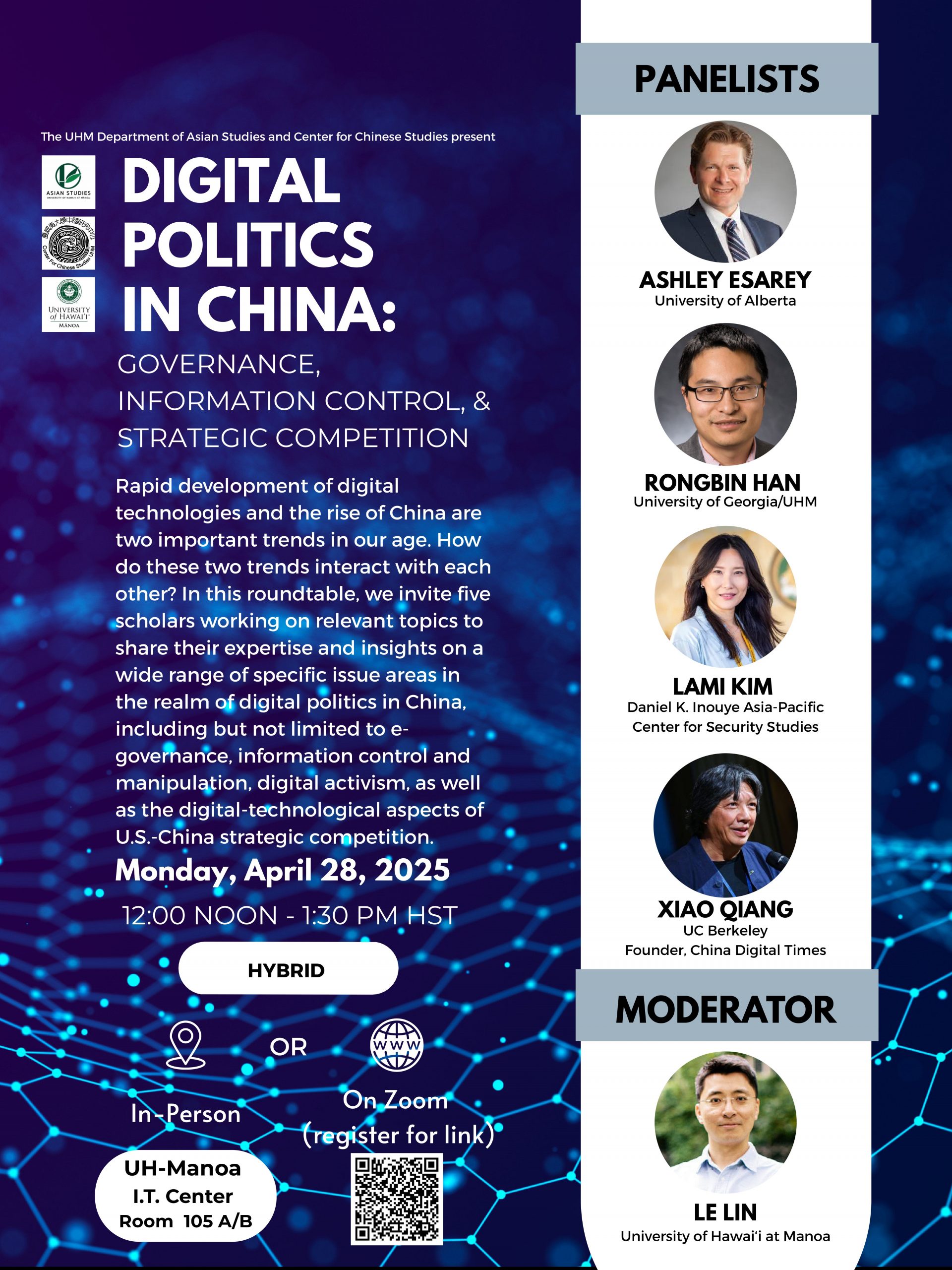
Monday, April 28, 2025
12:00 PM – 1:30 PM HST
Hybrid Event: I.T. Center 105 A/B & Online
Rapid development of digital technologies and the rise of China are two important trends in our age. How do these two trends interact with each other? In a roundtable on Monday, April 28, 2025 in the I.T. Center 105 A/B, five scholars were invited to share their expertise and insights on a wide range of specific issue areas in the realm of digital politics in China, including but not limited to e-governance, information control and manipulation, digital activism, as well as the digital-technological aspects of US-China strategic competition. The discussion was be moderated by Le Lin (Associate Professor of Social Sciences, University of Hawai’i at Mānoa).
This event was co-sponsored by the Department of Asian Studies and Center for Chinese Studies at the University of Hawai’i at Mānoa.
About the Speakers:
Ashley Esarey is Associate Professor of Political Science and Director of the Taiwan Studies Program at the University of Alberta. He previously held appointments at Whitman College, Harvard University (An Wang Postdoctoral Fellow in Chinese Studies), and Middlebury College, and earned his MA, MPhil, and PhD from Columbia University. Dr. Esarey’s research concerns media politics in China, East Asian foreign relations, green energy policy, and democratization in Taiwan.
Rongbin Han is an Associate Professor in the Department of International Affairs at the University of Georgia and a Visiting Associate Professor in the Department of Asian Studies at the University of Hawai’i at Mānoa. His research interests include contentious politics, media politics, political participation, digital activism, cybersecurity, internet governance, democratization, and authoritarian resilience with a focus on China and East Asia.
Lami Kim is a faculty member at the Daniel K. Inouye Asia-Pacific Center for Security Studies and previously served as Associate Professor and Director of the Asian Studies Program at the U.S. Army War College. Her research focuses on nuclear policy, emerging technologies, and international security, with a regional emphasis on East Asia. She also examines civil-military relations and the security implications of technological change across the Indo-Pacific.
Xiao Qiang is a Research Scientist at the UC Berkeley School of Information and the Founder and Editor-in-Chief of China Digital Times, with prior roles including Executive Director of Human Rights in China and visiting fellow at the Santa Fe Institute. His research explores state censorship, propaganda, disinformation, and AI-driven surveillance in China, as well as digital activism and the free flow of information online. He also leads the Counter-Power Lab and develops technologies to resist authoritarian information control.
